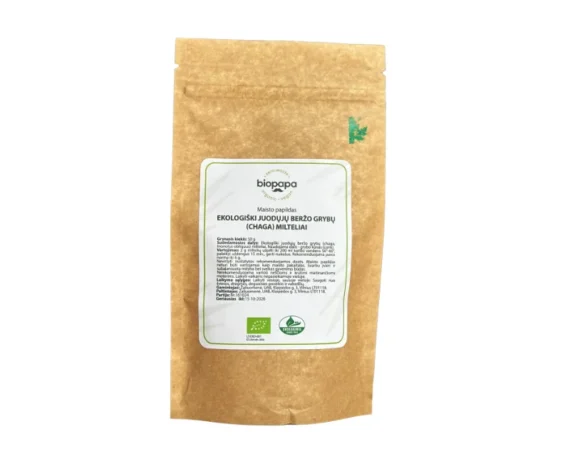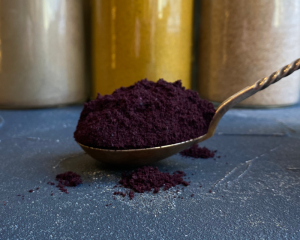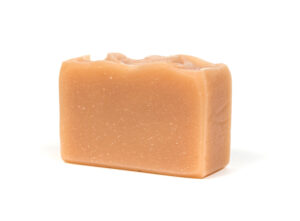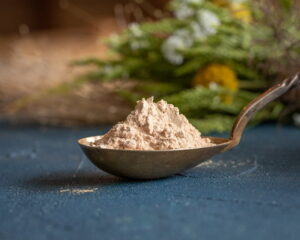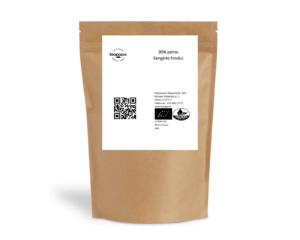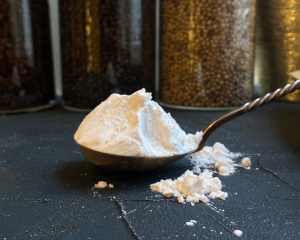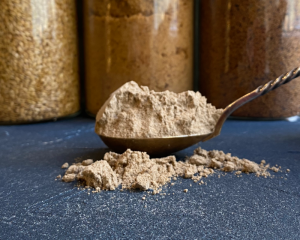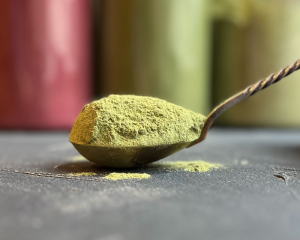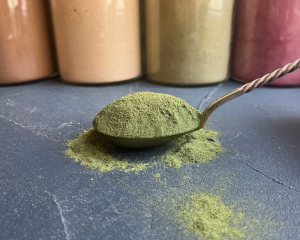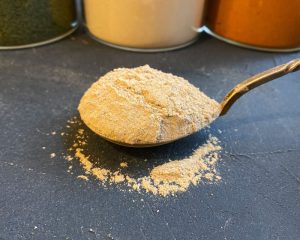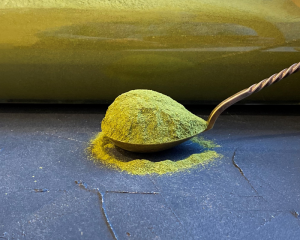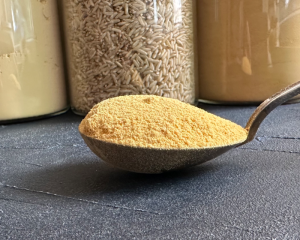Organic black birch chaga powder
From 9.00€
The dense forests of the northern climate hide a wonderful natural treasure – the chaga mushroom Inonotus obliquus. Chaga, which is revered for its potential health benefits, is commonly consumed as a dried mushroom powder and has gained recognition in modern wellness circles.
Chaga has a rich history of traditional use in many cultures, especially in Northern Europe, Russia and some indigenous North American communities. Its use in traditions is often based on its health benefits and unique properties.
Our chaga mushroom powder is made in Estonia from organically grown chaga mushrooms grown in harsh climates. Interestingly, 51% of Estonia is covered by forests and 40% of these are certified organic.
Chaga has been used as a folk remedy in many traditions for centuries for a variety of health problems, including digestive, respiratory and skin ailments.
Black birch mushrooms have historically been considered a tonic for general health and immunity. Chaga is often used as a tea or decoction to improve the body’s natural defence mechanisms.
Some cultures believed that chaga promoted longevity.
Chaga tea, made from dried mushroom pieces or chaga powder, was a common preparation. It was loved for its earthy flavour and potential health benefits.
In some cultures, the chaga has been used in rituals and ceremonies to symbolise the connection between man and nature.
Chaga not only has a rich history of traditional uses, but modern scientific research into the potential health benefits of black birch mushrooms is ongoing.
Vitamins and minerals in chaga
Vitamins
Vitamin D – Chaga is a natural source of vitamin D, which is essential for bone health, the immune system and general well-being.
Vitamin K – Vitamin K is important for blood clotting and bone health.
B vitamins – Chaga contains a variety of B vitamins, including B1 (thiamin), B2 (riboflavin), B3 (niacin), B5 (pantothenic acid), B6 (pyridoxine) and B9 (folate). These vitamins are crucial for energy metabolism, brain function and cell health.
Vitamin C – Chaga is rich in vitamin C, an antioxidant that supports the immune system and skin health.
Minerals
Calcium – Chaga is a source of calcium, which is essential for strong bones and teeth, muscle function and nerve transmission.
Potassium – Potassium helps regulate blood pressure, fluid balance and muscle contractions.
Iron – Iron is essential for the production of red blood cells and for the transport of oxygen in the body.
Zinc – Zinc plays an important role in the immune system, wound healing and DNA synthesis.
Magnesium – Chaga contains magnesium, which is essential for muscle and nerve function, bone health and energy production.
Phosphorus is essential for strong bones and teeth, as well as for cell growth and renewal.
Selenium is an antioxidant mineral that supports the immune system and thyroid function.
Copper is essential for the production of red blood cells and collagen, as well as for general health.
Manganese is important for bone health, metabolism and antioxidant protection.
Sulphur is an essential component of amino acids and plays an important role in protein synthesis.
Chaga is rich in antioxidants, including polyphenols and melanin. These compounds help fight oxidative stress and protect cells from damage.
Chaga beta-glucans stimulate the immune system, possibly strengthening the body’s defences against infection, and may also lower cholesterol and blood sugar levels.
Chaga contains betulinic acid, a natural anti-inflammatory compound. It can help reduce inflammation and relieve pain.
Chaga is considered an adaptogen, helping the body adapt to stressors, promoting resilience and supporting general well-being.
Chaga can promote healthy digestion by reducing gastrointestinal discomfort and can help maintain a balanced gut microbiome.
Attention
First, make sure that the Chaga powder is obtained from reliable suppliers to avoid contamination.
Start with a small amount and observe your body’s reaction. Chaga can cause indigestion in high doses.
Allergic reactions: although rare, allergic reactions from Chaga have been reported. Be careful, especially if you are allergic to mushrooms.
Chaga is high in oxalates. Oxalates bind to calcium during digestion and are excreted in the urine. Oxalates that are not combined with calcium can form kidney stones. Combine foods high in oxalate with foods rich in calcium. Cooking chaga reduces the amount of oxalates.
Uses of black birch mushroom (chaga) powder
The maximum recommended daily dose is 2-6 g.
Chaga powder can be used as a seasoning or flavour enhancer in a variety of dishes such as soups, stews, broths. The taste is subdued, slightly bitter.
Organic black birch birch sap powder 100%
Energy value 779 kj / 190 kcal
Fat 1,13 g
- of which saturates 0,49 g
Carbohydrates 12,84 g
- of which sugars < 0,5 g
Protein 3,63 g
Salt <0,03 g
Store in a cool, dry place. Keep away from light, moisture and insects.


